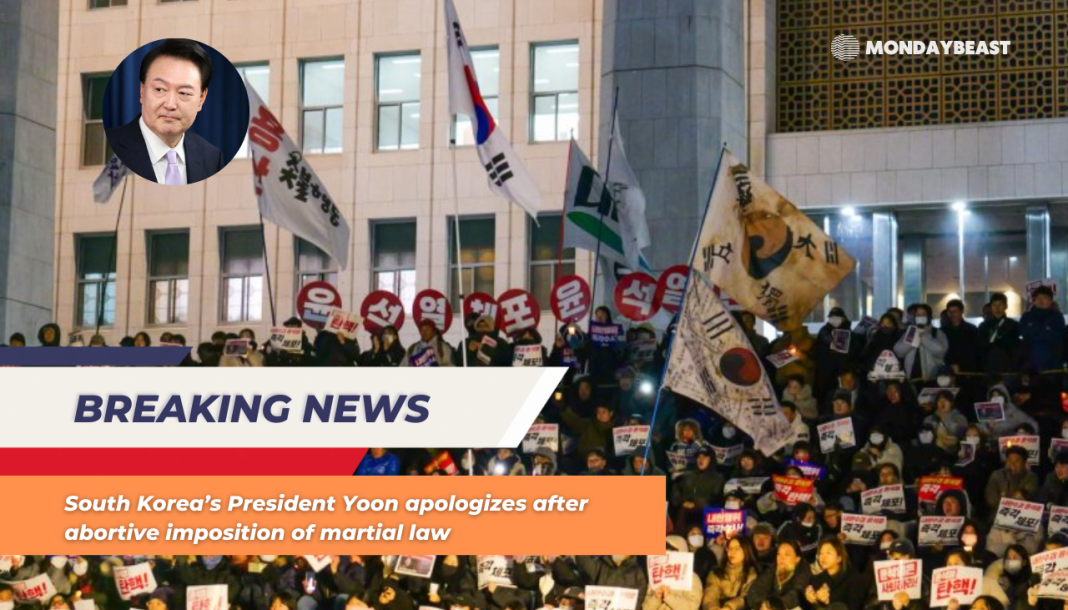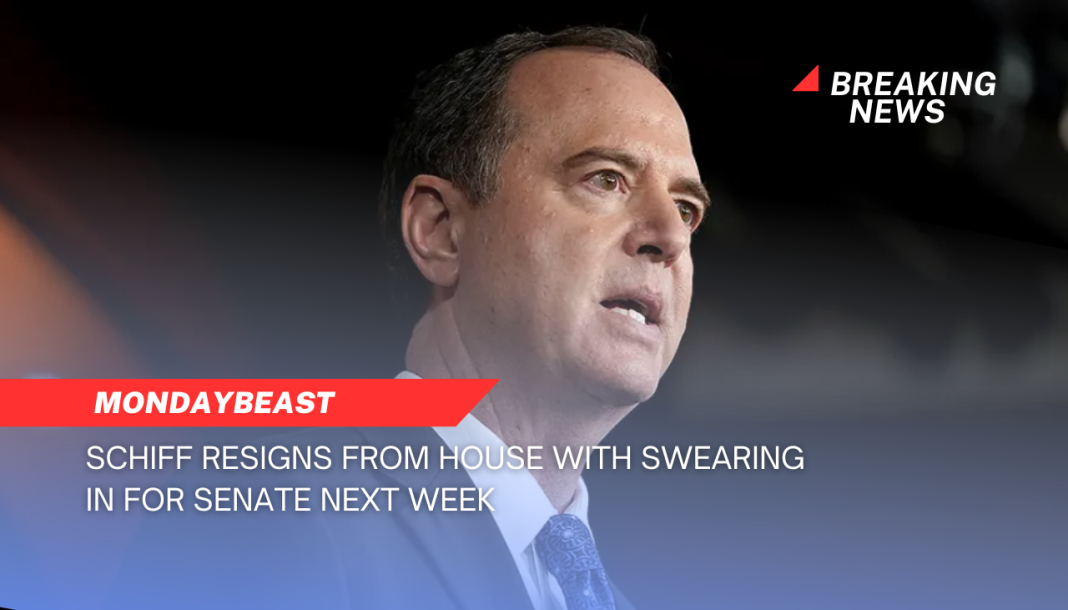South Korea faces a turbulent political storm. President Yoon Suk Yeol recently tried to impose martial law. Now, he stands in front of the nation, apologizing for his desperate move.
Why did Yoon think martial law was necessary? His declaration came late at night, in a televised address. He accused the opposition party of sympathizing with North Korea. Accusations of anti-state activities arose, sending shockwaves throughout the country.
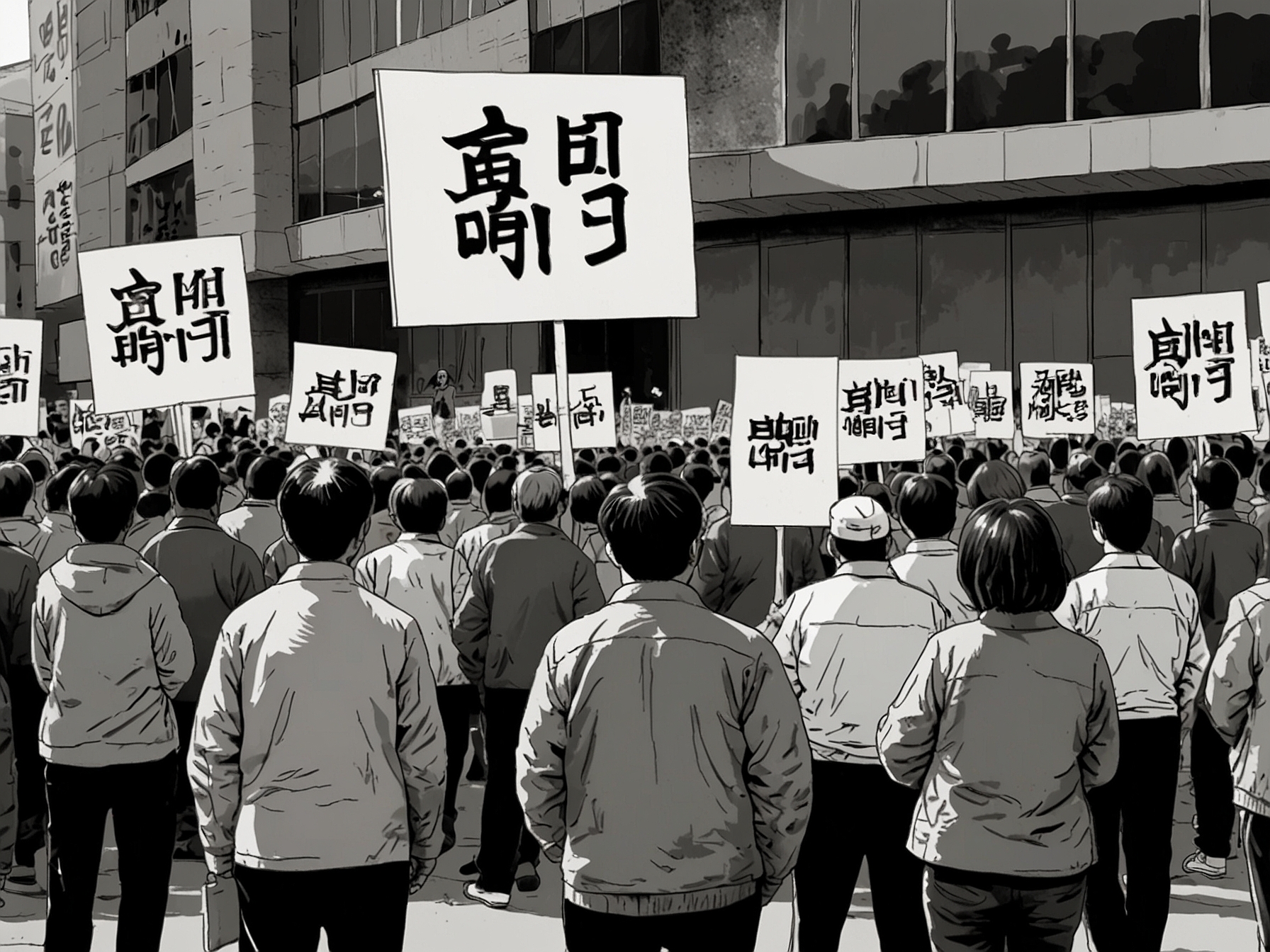
In his two-minute address, Yoon said, “This emergency martial law declaration stemmed from my desperation as the ultimate responsible party for state affairs.” These words carry weight, especially in a nation with a fraught history.
Imagine living in South Korea, a country that battled through years of dictatorship. Yoon declared martial law, and then, just six hours later, the situation unraveled. Lawmakers faced soldiers, striking down the decree unanimously. The sheer chaos of the moment must have felt surreal for many.
What’s next for President Yoon? The pressure is mounting. He now faces an impeachment vote in parliament this weekend. As calls for his resignation grow louder, what does he plan to do?
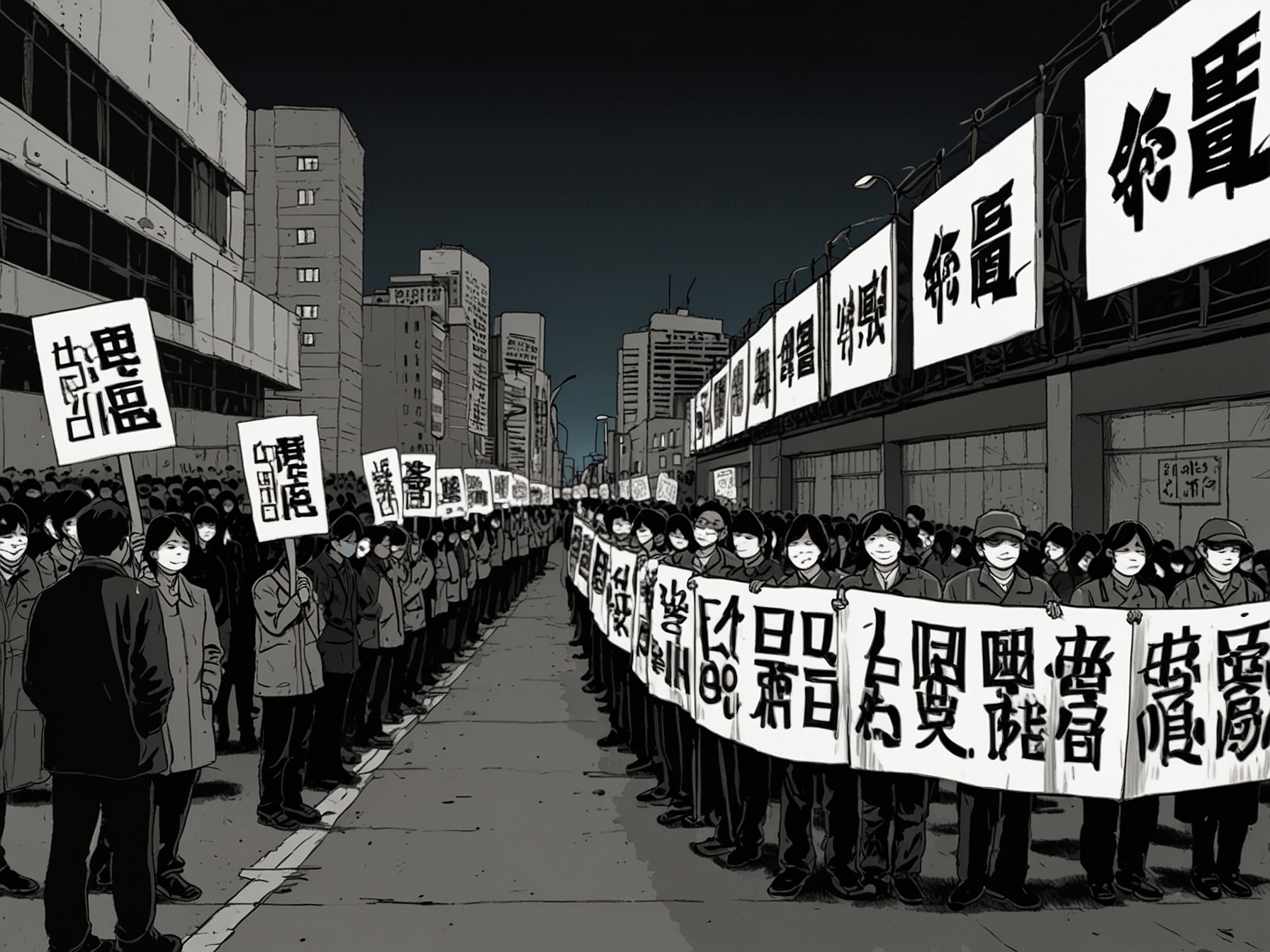
In his address, Yoon expressed remorse. He told the nation, “I am deeply sorry and sincerely apologize to the citizens who must have been greatly shocked.” Those words resonate, yet they can’t erase the fear and anxiety his actions invoked.
Opposition leaders and citizens have taken to the streets. Protests erupt as many demand justice. Even members of Yoon’s People Power Party are wavering in support. The political landscape feels fragile, akin to a house of cards.
Han Dong-hoon, the leader of Yoon’s own party, voiced concern. He stated that it is “impossible for the president to carry on his normal duties.” Such statements reflect a shift, showing that even Yoon’s allies may no longer stand firmly behind him.
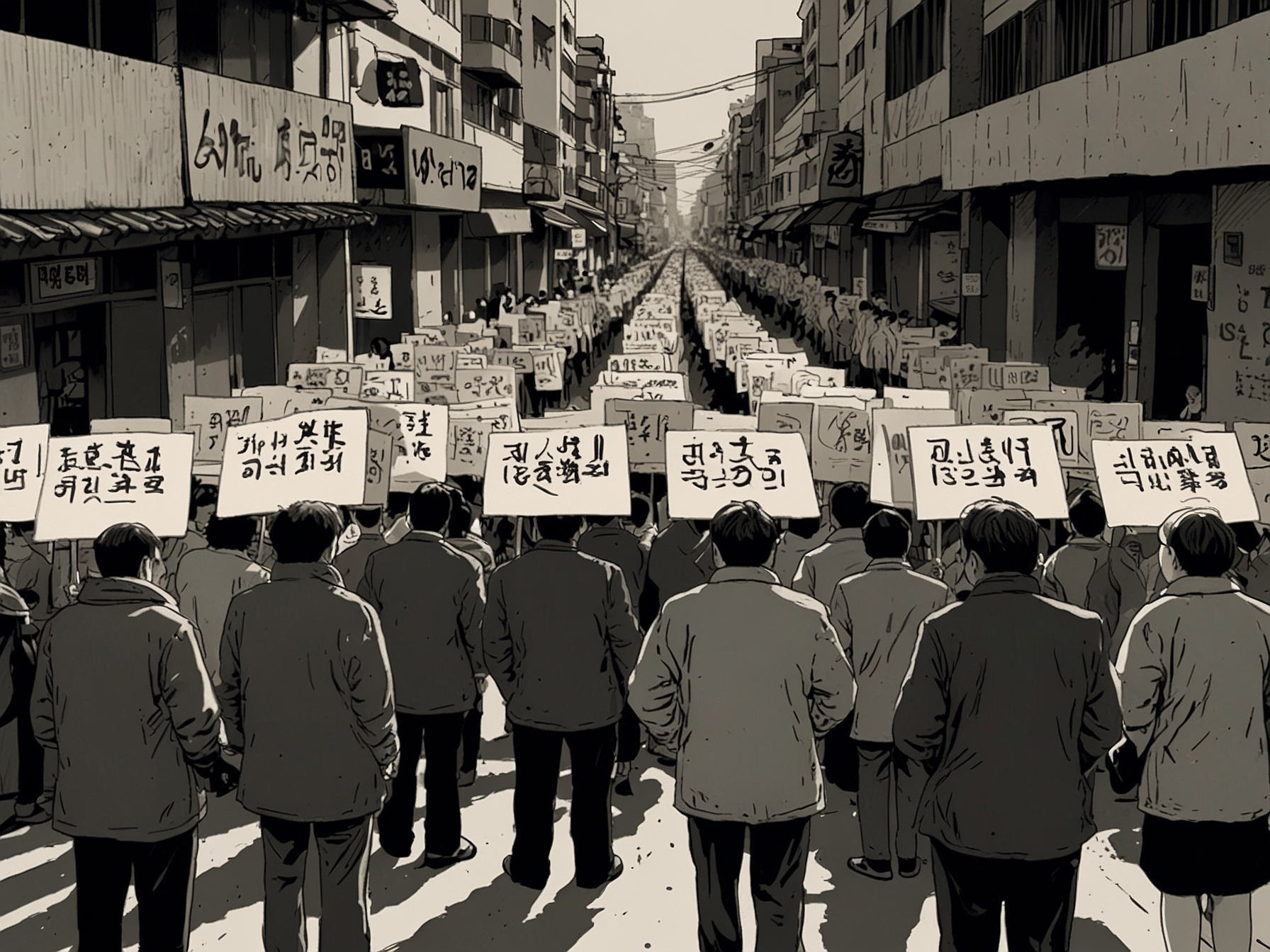
As Yoon apologized, he mentioned, “I will not avoid the legal and political responsibility.” But what does that responsibility look like? And how will he navigate the troubled waters of his presidency?
The fear of a return to martial law lingers in the air. Yoon attempted to quell rumors, firmly stating, “there will absolutely be no second attempt at a constitutional amendment.” Can citizens believe those words? Their history makes them wary, filled with memories of past oppression.
The outcry from citizens is a reminder. People remember the brutality of past regimes. They won’t easily forget the lessons learned from decades of military rule. Yoon’s actions stirred those deep-seated fears once again.
In these times, how do citizens come together? Should Yoon step down, or should he stay and lead? Every South Korean faces these questions. Who can provide the stability needed now? The collective anxiety mounts as the nation grapples with these complex issues.
Ultimately, Yoon’s apology is just a step. The road to recovery will be long and arduous. Will he be able to regain trust? Only time will tell. As citizens continue to voice their concerns, the nation watches closely.

